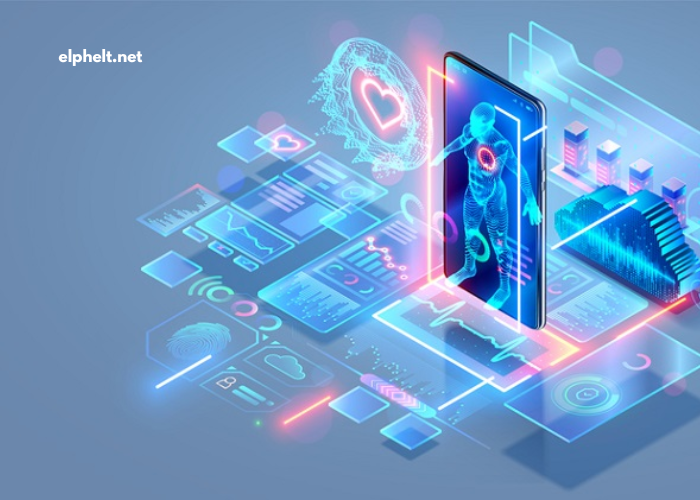As we move into 2025, technology continues to evolve at an astonishing rate. From AI-powered gadgets to breakthroughs in healthcare and home automation, new tech innovations are reshaping the way we live, work, and interact with the world. This article explores the most promising technologies that are poised to revolutionize our daily lives in 2025 and beyond.
The Rise of AI-Powered Personal Assistants
A Smarter Future with AI Integration
Artificial Intelligence (AI) has already made significant strides in transforming daily life, and 2025 promises even more. AI-powered personal assistants, like Apple’s Siri, Amazon’s Alexa, and Google’s Assistant, are becoming far more sophisticated, offering a personalized experience that can anticipate your needs and provide solutions proactively. These assistants will become more intuitive, able to learn your habits, preferences, and schedules to optimize your productivity, streamline your routines, and even suggest lifestyle improvements.
For example, AI-driven systems in your home will seamlessly adjust lighting, temperature, and entertainment based on your behavior patterns. Additionally, AI will begin to extend beyond traditional tasks, such as managing emails or controlling smart devices, by handling more complex activities like making restaurant reservations, arranging transportation, or even drafting content for work.
AI in Healthcare: A Personal Health Assistant
Another groundbreaking advancement in AI is its role in healthcare. With wearable devices powered by AI, individuals will soon have access to continuous health monitoring that tracks vital signs, anticipates potential health issues, and offers immediate recommendations. AI will not only help detect early signs of diseases like cancer or diabetes but also deliver personalized health advice based on an individual’s unique medical history.
The Internet of Things (IoT): A Smarter World
IoT Revolutionizing Home Automation
In 2025, the Internet of Things (IoT) will continue its rapid growth, linking everyday devices and appliances to the internet. This seamless connectivity will bring about smarter homes, where everything from refrigerators to washing machines is interconnected and can be controlled remotely.
Imagine a refrigerator that notifies you when you’re running low on groceries or a washing machine that detects the fabric type of your laundry and adjusts the settings accordingly. These IoT-powered appliances will not only make life more convenient but also more efficient, with the ability to save energy and reduce waste.
IoT in Cities: Smart Urban Living
The reach of IoT extends beyond the home. In 2025, we will see the rise of smart cities powered by IoT technologies. These cities will be equipped with interconnected systems for traffic management, waste collection, energy use, and even public safety. Real-time data will enable city officials to optimize resources, reduce congestion, and improve the overall quality of urban life.
For instance, smart traffic lights will adjust in real time based on traffic flow, reducing gridlock and pollution. IoT-enabled waste bins will alert sanitation workers when they’re full, improving waste management efficiency.
Augmented Reality (AR) and Virtual Reality (VR): The Next Level of Interaction
AR Enhancing Everyday Activities
Augmented Reality (AR) and Virtual Reality (VR) technologies have long been seen as futuristic concepts, but in 2025, they will become integral parts of everyday life. AR will be embedded in smartphones, glasses, and even contact lenses, allowing users to overlay digital information onto the physical world. This could transform how we shop, navigate, work, and communicate.
For example, AR can revolutionize shopping by allowing consumers to visualize how products, such as furniture or clothing, would look in their home or on their body before making a purchase. Similarly, AR will improve navigation, providing real-time directions overlaid onto the streets, ensuring you never get lost again.
VR: A New Way to Work and Play
Virtual Reality (VR) will also evolve in 2025, becoming a powerful tool for both work and play. Remote work is expected to continue its growth, and VR will be a game-changer for virtual offices. Imagine attending a meeting in a fully immersive 3D environment, or collaborating with colleagues around the globe in a virtual space that mimics the physical world.
Beyond work, VR will offer new forms of entertainment, allowing users to step into virtual worlds for gaming, concerts, or even virtual travel experiences. As VR technology becomes more affordable and accessible, its presence in daily life will only increase.
5G and Beyond: Transforming Connectivity
Lightning-Fast Internet Speeds
One of the most anticipated technological advancements in 2025 is the rollout of 5G networks across the globe. The next generation of wireless connectivity promises lightning-fast internet speeds, lower latency, and the ability to connect a vast number of devices simultaneously. This will significantly impact industries like healthcare, education, and entertainment.
For instance, in healthcare, 5G will enable the real-time transmission of large medical data, such as 4K video feeds during surgeries or detailed scans of patients’ conditions. In education, 5G will facilitate immersive learning experiences, such as virtual classrooms and interactive lessons, even in remote areas.
5G Enabling the Future of Autonomous Vehicles
5G’s ultra-low latency is also critical for the development of autonomous vehicles. With 5G, self-driving cars will be able to communicate with each other and infrastructure in real time, making roads safer and more efficient. In 2025, it is expected that more cities will begin testing and deploying autonomous vehicles, marking a major shift in the way we commute and travel.
Robotics: The Future of Personal Assistants and Labor
Home Robots: A New Level of Assistance
Robots have already made their way into homes, from robotic vacuums to lawnmowers. By 2025, home robots will become far more sophisticated, taking on a wider variety of tasks. Imagine a robot capable of cooking your meals, folding your laundry, or even assisting with childcare. These robots will be designed to integrate seamlessly into daily life, performing repetitive tasks so that you can focus on more important aspects of your day.
In the workplace, robots will also play a bigger role in improving efficiency and reducing manual labor. From warehouse automation to specialized tasks in healthcare and manufacturing, robots will increasingly handle dangerous, repetitive, or physically demanding jobs, allowing humans to focus on more creative and high-value activities.
Sustainable Tech: Innovations for a Greener Future
Solar-Powered Smart Homes
With growing concerns about climate change, sustainability has become a major focus for the tech industry. In 2025, we can expect to see even more energy-efficient technologies designed to reduce our carbon footprint. Smart homes will be powered by solar energy and use advanced energy management systems to optimize energy consumption.
Solar panels will become more efficient and affordable, allowing homeowners to generate their own electricity and reduce reliance on traditional power grids. Additionally, energy-efficient appliances and lighting, coupled with smart energy management systems, will further reduce household energy usage, contributing to a more sustainable future.
Electric and Hydrogen-Powered Vehicles
Transportation is another area where technology is making strides toward sustainability. By 2025, electric and hydrogen-powered vehicles will become more widespread, with many automakers focusing on creating eco-friendly alternatives to traditional gasoline-powered cars. The growing availability of charging infrastructure, along with government incentives and stricter emission standards, will drive the adoption of these vehicles.
In addition to reducing harmful emissions, electric vehicles (EVs) are expected to become smarter, with AI and IoT technologies improving vehicle performance and enhancing user experiences. From self-parking capabilities to predictive maintenance, the driving experience will be more seamless and enjoyable than ever before.
Biometric Authentication: A More Secure Future
The End of Passwords
In 2025, biometric authentication will replace traditional passwords, offering a more secure and convenient way to access devices and services. Whether it’s using facial recognition, fingerprint scanning, or voice recognition, biometrics will become the standard for verifying identities in both personal and professional settings.
With this shift, you will no longer need to remember a myriad of complex passwords. Instead, your unique physical characteristics will serve as the key to unlocking everything from your smartphone to your bank accounts. This innovation will greatly reduce the risks of identity theft and unauthorized access to sensitive data.
Conclusion: Embracing the Future
The technological innovations that are emerging in 2025 have the potential to drastically change the way we live, work, and interact with the world around us. From AI assistants that anticipate our needs to smart cities powered by IoT, these advancements will make our daily lives more connected, efficient, and enjoyable.
However, with these exciting changes comes the responsibility to ensure that these technologies are used ethically and in ways that benefit society as a whole. As we move forward into this new era, it’s crucial to stay informed and adaptable to these innovations, embracing them while being mindful of their potential impact on privacy, security, and human well-being.
The future is bright, and it’s filled with possibilities. 2025 will be a year of transformation, as technology continues to push the boundaries of what’s possible and revolutionizes our daily lives in ways we never imagined.







